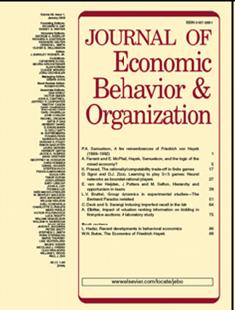
Gift-Exchange in Society and the Social Integration of Refugees: Evidence from a Field, a Laboratory, and a Survey Experiment
Refugee integration requires broad support from the host society, but only a minority is actively engaged. Given that most individuals reciprocate kind behavior, we examine the idea that the proportion of supporters will increase as a reciprocal response to refugees’ contributions to society through volunteering. Our nationwide survey experiment shows that citizens’ intentions to contribute time and money rise significantly when they learn about refugees’ pro-social activities. However, we find a substantial heterogeneity in the observed treatment effects. Individuals with a high reciprocal inclination show higher willingness to contribute time, while individuals with a lower reciprocal inclination are ready to contribute money after learning about the refugees' good deeds. Information regarding the possibility to establish a mutual support relationship with the refugees does not generally increase the willingness to contribute time or money beyond the information on refugees’ general contributions to the society. We complement this investigation with experiments in the lab and the field that confirm our findings for actual behavior.





